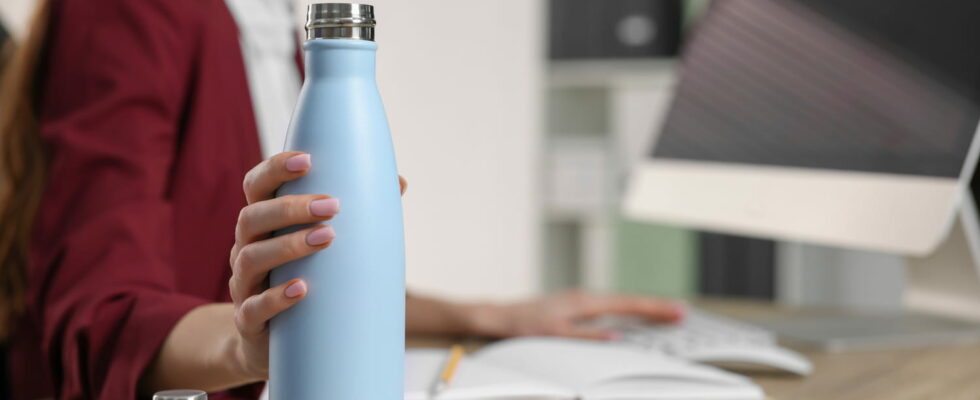Reusable water bottles can become breeding grounds for germs, here’s when and how to clean them properly.
Much more ecological and economical, reusable water bottles or small water bottles have become a must-have in offices and gyms. They are much more practical than small plastic water bottles that are single-use. However, how long can they be reused? Philip Tierno, professor of microbiology at New York University in the United States, explained to Mashable that you have to be careful with reusable bottles.
These can become breeding grounds for germs because they come into contact with hands, which are themselves in contact with bacteria, especially since to open the bottle, you have to unscrew the cap and touch the neck. Bacteria can gradually accumulate on the inside walls of the bottle. The humidity inside the container is also favorable to their proliferation.

According to a study published in the Journal of Allergy and Clinical Immunologyeven if these microorganisms are known by the body which can then eliminate them, they are dangerous for people with a more fragile immune system. Ingesting these pathogens can trigger allergies, headaches or stomach aches.
To be on the safe side, it is best to clean your water bottle regularly. The specialist recommends cleaning it as a whole: inside, outside, neck and cap using hot water and soap. It is also possible to use a small brush to get into the corners and if the container is narrow. This complete cleaning should be done at least once a week, or even twice. That said, every day, it is advisable to empty your water bottle and rinse it with hot water.
Philip Tierno advises against reusing plastic bottles. While it is also possible to wash them, the bottle deteriorates quickly and this exposes it even more to bacteria. You should also not hesitate to replace your bottle if you notice signs of deterioration or persistent odors. The same advice applies to glass water bottles that you can use at home, for example.
